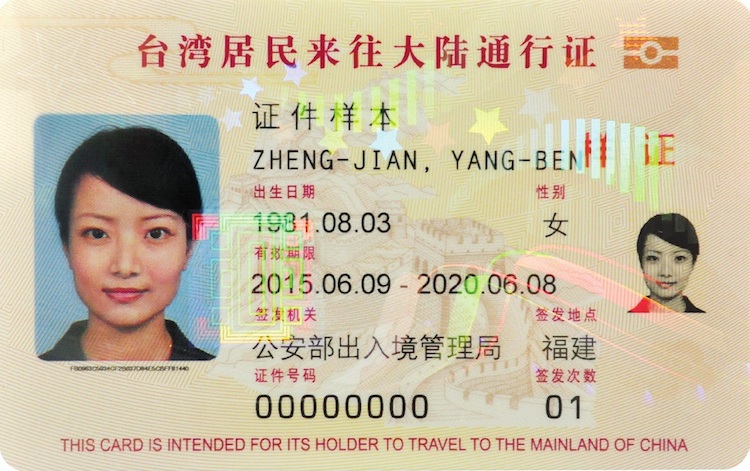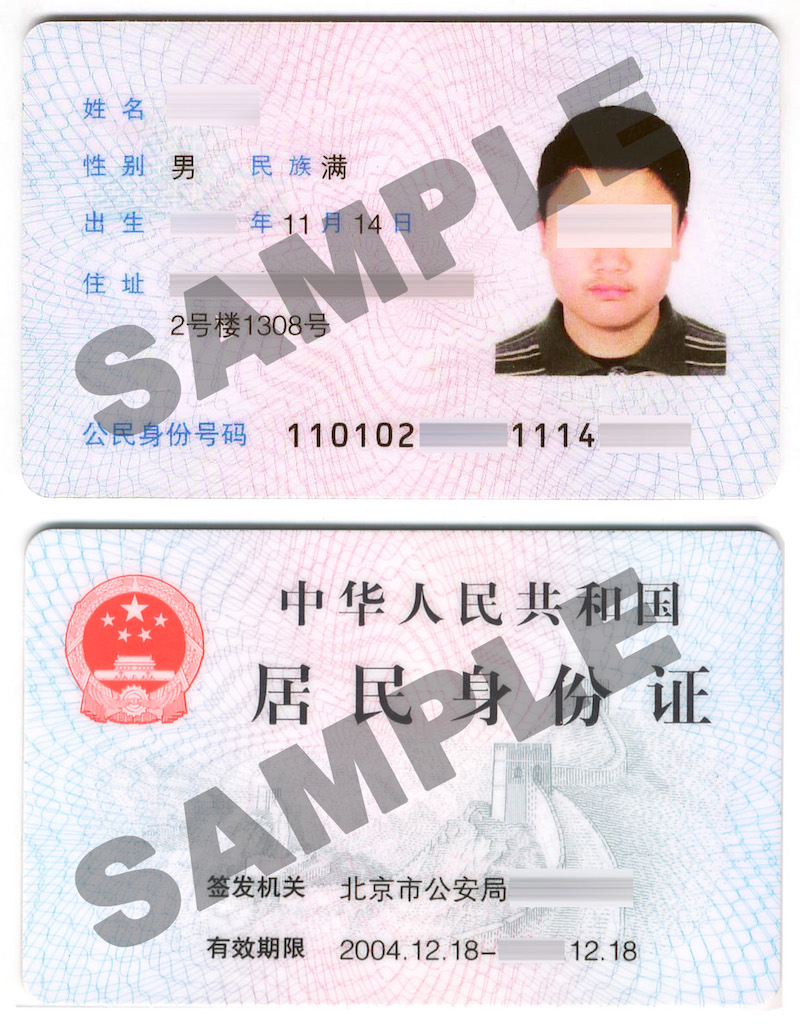by Brian Hioe
語言:
English
Photo Credit: WikiCommons
IF IN RECENT times, some have interpreted the recent arrests of Chinese with foreign citizenship as a shift in the Chinese government calling for loyalty to China on the basis of ethnicity, trumping all else. This would not be particularly surprising. In particular, Chinese citizens who obtain foreign citizenships actually automatically lose their Chinese citizenship. But this has been disregarded in the recent arrests of former Chinese citizens for political dissent, with the insistence that because they were once Chinese citizens, they can still be prosecuted under Chinese law.
This has been raised in the recent case of five arrested Hong Kong booksellers who published material critical of the Chinese government, one of which had British citizenship and another of which had Swedish citizenship, but who were kidnapped to China and later made confessions of wrongdoing on state-run television. Most Hong Kong residents became Chinese citizens after the 1997 handover, but must report a change of citizenship to the Hong Kong Special Administration Region Immigration if they hold more than one citizenship. This a process which differs from in China, though change in citizenship allows for retaining of the right of abode in Hong Kong. In the case of the recent arrested booksellers, however, the Chinese government has been insistent that despite holding foreign citizenships, these arrested booksellers are Chinese nationals first before anything else.
A similar case would be the recent refusal of the Indian government to issue a visa to an Uighur activist who had since acquired German citizenship after fleeing from China, speculated to be a result of Chinese pressure. Apparently, Chinese citizenship trumped any other form of citizenship in the eyes of the Indian government, or Chinese pressure led the Indian government to act as if this were so. Relatedly, the possibility of an expanding definition of Chinese citizenship has also been raised in regards to the recent trend of deporting Taiwanese citizens arrested abroad to China who—like arrested Hong Kong booksellers—were also paraded on state-run television for confessions of wrongdoing against Chinese nationals once in China, although deportation to a country which is not one’s native country for persecution is not illegal according to international law.
Some question whether this fluid definition of Chinese citizenship may be expanded further in the future. Indeed, some have raised the possibility that China would issue an identification card allowing those of Chinese descent to enjoy privileges similar to Chinese within China, as a way of consolidating loyalty over diasporic Chinese. Although pilot programs for this have been long discussed, currently the Chinese government claims that it has no plans to issue such a card, which would significantly affect countries with substantial ethnic Chinese populations such as Malaysia, Singapore, and Indonesia. However, this could also affect non-Han individuals descended from ethnic groups that live within the borders of present-day China who would also be deemed “ethnic Chinese”, as with the overseas Tibetan and Uighur community.
ROC citizens already use a “Mainland Travel Permit for Taiwan Residents” in lieu of the ROC passport to enter China, which allows extra privileges for ROC citizens in China which foreigners would not enjoy regarding entry and stay. In Shanghai, holders of the “Mainland Travel Permit for Taiwan Residents” enjoy resident-like privileges. Likewise, Chinese citizens that wish to live permanently in the ROC are not required to renounce PRC citizenship, and acquire permanent residency in Taiwan faster than foreigners would.
The peculiar relation of the ROC and PRC is what has led to such a situation, as distinguished from a broader attempt to incorporate all ethnic Chinese into a form of PRC citizenship. Nevertheless, the ROC itself already has laws which allow overseas ethnic Chinese to obtain a form of semi-citizenship in spite of no relation to either China or Taiwan, and what is questioned is whether China may install similar laws.
 An example of a Mainland Travel Permit for Taiwan Residents. Photo credit: Ministry of Public Security of the People’s Republic of China
An example of a Mainland Travel Permit for Taiwan Residents. Photo credit: Ministry of Public Security of the People’s Republic of China
In this, we see shades of antecedent history. Modern China’s relation to overseas Chinese has gone through several inversions in the course of the 20th century. During dynastic China, for example, overseas Chinese were seen as traitors for leaving their country. But during during the Republican era, a shift occurred in how overseas Chinese were seen, by which overseas Chinese became thought of as fellow overseas countrymen rather than traitors. This shift was a result of the synthesis of Han nationalism during this period and the attempt to establish China as a nation-state on this basis.
Likewise, during the Mao era, given the significant involvement of overseas Chinese in trade, overseas Chinese were sometimes seen as treasonous overseas capitalists rather than overseas countrymen. But with the shift towards a market economy, overseas Chinese were once again increasingly thought of as fellow members of the Chinese nation, in order that their wealth could be brought in to benefit the growing Chinese economy. Indeed, we may note that the contemporary Chinese economy is highly dependent on investment from overseas Chinese and Taiwanese, a relatively unique feature of the Chinese economy.
The issue at hand would be how to define what consists of “China.” In particular, the definition of “China”, in terms of people and territory, is always in a process of flux. The phenomenon of fluctuating definitions of national citizenship by no means unique to China. It may be that China may eventually make moves to incorporate ethnic Chinese who may not be PRC citizens into the fold as a way of expanding power, as we see in past history, in which a shift towards incorporating overseas Chinese was for the sake of a nation-building project. Many forms of national citizenship, like the PRC’s present form of national citizenship, are defined on jus sanguinis, or right of descent, but a shift towards recognizing all ethnic Chinese would be a large expansion of jus sanguinis.
A parallel in the national recognition of diasporic ethnic citizenship might be Israel’s Law of Return, which recognizes all individuals of Jewish descent as citizens of Israel. Indeed, if China does move towards attempts to incorporate overseas and diasporic Chinese within the fold of China and to instill a loyalty to China, Israel’s global outreach programs—particularly the Birthright program—provides a model of indoctrinating loyalty among a diasporic population to a nation-state which purports to represent the entirety of that diasporic population. This would also work well to mobilize individuals of Chinese heritage descent to aggressively defend China against critics, framing criticisms of the actions of the Chinese state as an assault on Chinese cultural heritage. We see similar, but unsuccessful attempts, by the ROC to accomplish the same in the past.
 Example of a PRC resident identification card. Photo credit: WikiCommons
Example of a PRC resident identification card. Photo credit: WikiCommons
In regards to the shifting terrain of how national citizenship is defined, we may draw parallel to the shifting terrain of how Chinese territory is defined. It is that the present-day PRC is in the habit of citing the dynastic history of China to provide justification for territory grabs. A useful parallel in regards this phenomenon is much like the CCP’s treatment of Marxism, as a party-state which continues to claim to be socialist in the present despite its capitalist nature and continues to offer Marxist justifications for its actions, but roots through Marxist texts hermeneutically in order to produce justification for its actions—no matter how convoluted the explanation. Very likely present-day China roots through the dynastic history of China to provide justification for the actions of contemporary China, similarly.
But it is that an expansion of a definition of Chinese citizenship would only be in the interests of the Chinese state. China would seek to expand its definition of citizenship with its eye on the commercial enterprises of overseas Chinese, as well as to further the interests of the Chinese state if it can convince individuals of Chinese descent to be more loyal to their cultural mother country of China than to any other country they may be a citizen of. Yet, nevertheless, as we see in the Hong Kong booksellers and other cases, this would subject overseas Chinese to the authority of the Chinese state—and if overseas Chinese are used to freedoms elsewhere, this is what they may stand to lose.


 An example of a Mainland Travel Permit for Taiwan Residents. Photo credit: Ministry of Public Security of the People’s Republic of China
An example of a Mainland Travel Permit for Taiwan Residents. Photo credit: Ministry of Public Security of the People’s Republic of China Example of a PRC resident identification card. Photo credit: WikiCommons
Example of a PRC resident identification card. Photo credit: WikiCommons